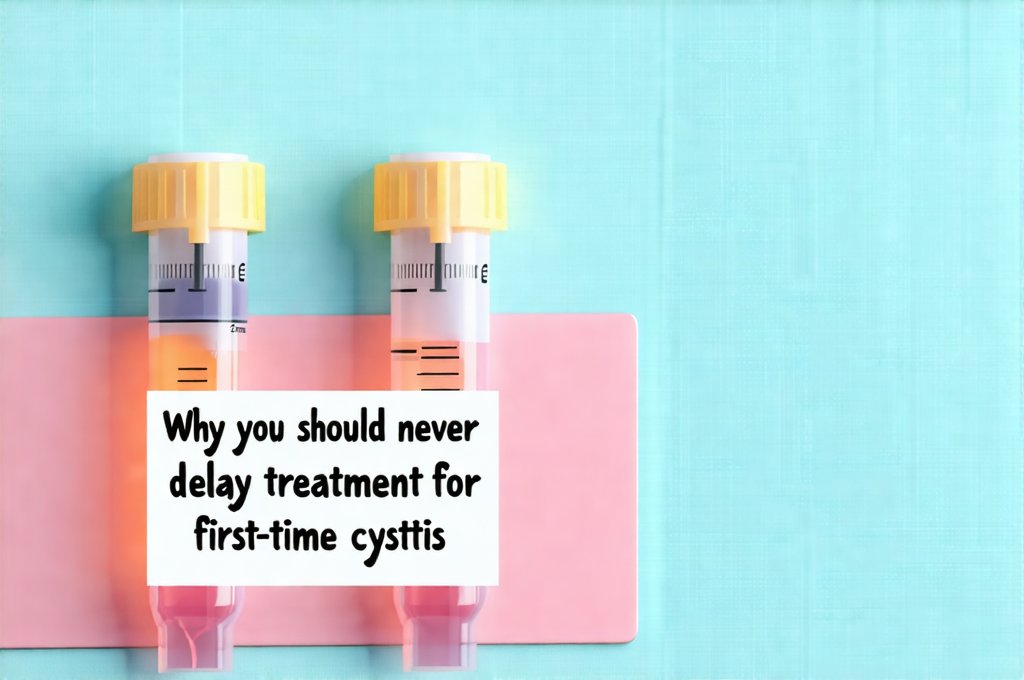Cystitis, often described as a urinary tract infection (UTI), is an incredibly common ailment affecting millions of people – disproportionately women – each year. While frequently perceived as merely uncomfortable, delaying treatment for even seemingly mild first-time cystitis can escalate into more serious health complications. Many individuals initially attempt self-management with increased fluid intake or over-the-counter remedies, hoping symptoms will resolve on their own. However, this approach isn’t always effective and can inadvertently allow the infection to progress, potentially leading to kidney infections, chronic bladder problems, and even sepsis in rare cases. Understanding the risks associated with delayed treatment is paramount for proactive healthcare and safeguarding long-term well-being.
The discomfort of cystitis—burning sensations during urination, frequent urges to go, lower abdominal pain—is understandably unpleasant, but it’s crucial to recognize these symptoms as a signal from your body that something needs attention. It’s easy to dismiss early signs, hoping they will simply disappear, or to postpone seeking medical advice due to busy schedules or concerns about inconvenience. However, the bacterial infection causing cystitis doesn’t usually clear up on its own; it requires appropriate treatment with antibiotics prescribed by a healthcare professional. Ignoring these initial symptoms can transform a relatively straightforward condition into a more complex and potentially dangerous health issue. Should you see a doctor for every UTI? It’s important to assess your situation carefully.
Understanding Cystitis and Its Progression
Cystitis occurs when bacteria – most commonly Escherichia coli (E. coli) from the digestive tract – enter the urethra and travel to the bladder, causing inflammation and infection. Women are inherently more susceptible due to their shorter urethras, which provide a quicker pathway for bacteria to reach the bladder. However, anyone can develop cystitis, regardless of age or gender. While many cases represent a first-time occurrence, recurrent infections are also common, often requiring further investigation into underlying causes or preventative measures.
The progression of untreated cystitis isn’t always linear, but it generally follows a concerning pattern. Initially, the infection remains localized to the bladder, causing symptoms like painful urination and increased frequency. However, if left unchecked, the bacteria can ascend through the urinary tract and reach the kidneys. This leads to pyelonephritis, a significantly more serious kidney infection with symptoms including fever, chills, back pain, nausea, and vomiting. Pyelonephritis requires immediate medical intervention, often involving intravenous antibiotics and hospitalization.
Beyond acute complications like kidney infection, chronic cystitis can develop even after an initial infection has seemingly resolved. This involves persistent inflammation of the bladder lining, leading to long-term pelvic pain, urinary urgency, and frequency, significantly impacting quality of life. In rare instances, untreated or recurring UTIs can lead to sepsis—a life-threatening condition caused by the body’s overwhelming response to an infection. Therefore, early diagnosis and treatment are vital not only for alleviating immediate discomfort but also for preventing these more severe long-term consequences. If you’re experiencing pain, it may be time to ask for a second opinion.
Why Prompt Treatment Is Critical
The cornerstone of cystitis treatment is antibiotics prescribed by a healthcare provider. These medications specifically target the bacteria causing the infection, effectively halting its progression and allowing symptoms to subside within a few days. The type of antibiotic used will depend on factors like the individual’s medical history, allergies, and the potential resistance patterns of bacteria in their region. It’s essential to complete the entire course of antibiotics as prescribed, even if symptoms improve before finishing, to ensure the infection is fully eradicated and to prevent antibiotic resistance from developing.
Delaying treatment increases the risk of complications exponentially. As mentioned previously, allowing the infection to persist allows it to ascend to the kidneys, causing pyelonephritis. Kidney infections can lead to permanent kidney damage if not treated promptly and effectively. In pregnant individuals, untreated cystitis poses risks to both the mother and developing baby, potentially leading to premature labor or low birth weight. Furthermore, delaying treatment contributes to the growing problem of antibiotic resistance, making future infections harder to treat. This is a public health concern that impacts everyone.
Promptly seeking medical attention also allows for accurate diagnosis. While many individuals self-diagnose based on symptoms, it’s important to confirm cystitis through a urine test (urinalysis) performed by a healthcare professional. This ensures the symptoms are actually caused by an infection and not another underlying condition that requires different treatment. A healthcare provider can also rule out other potential causes of urinary symptoms, such as sexually transmitted infections or bladder stones. It’s important to test for STIs when you have a UTI.
Recognizing Early Symptoms
Early cystitis symptoms often begin subtly, making it easy to dismiss them as minor discomfort. However, recognizing these early warning signs is crucial for prompt intervention:
– A burning sensation during urination (dysuria)
– Frequent urges to urinate, even when the bladder isn’t full
– Passing small amounts of urine frequently
– Cloudy or strong-smelling urine
– Mild pain or pressure in the lower abdomen
If you experience any combination of these symptoms, it’s important to consult a healthcare professional. Don’t wait for symptoms to worsen or become unbearable before seeking medical attention. Even mild symptoms warrant evaluation and potential treatment.
Navigating Healthcare Options
Accessing appropriate healthcare can sometimes be a barrier, but numerous options are available depending on your location and insurance coverage. Primary care physicians are typically the first point of contact for suspected cystitis. They can diagnose the infection through a urine test and prescribe antibiotics if necessary. Urgent care centers offer convenient same-day appointments and can provide similar diagnostic and treatment services.
Telemedicine is another increasingly popular option, allowing you to consult with a healthcare provider remotely via video call or phone. This can be particularly helpful for individuals who live in rural areas or have limited mobility. Some pharmacies are also beginning to offer UTI testing and treatment services under the guidance of a pharmacist. If symptoms are severe – such as high fever, chills, back pain, nausea, or vomiting – seek immediate medical attention at an emergency room.
Preventing Future Infections
While prompt treatment is essential for existing cystitis, preventative measures can help reduce the risk of future infections. Staying well-hydrated by drinking plenty of water helps flush bacteria out of the urinary tract. Urinating immediately after sexual activity can also help prevent bacteria from ascending to the bladder. Avoiding irritating feminine hygiene products, such as douches or scented sprays, is also recommended.
For individuals prone to recurrent UTIs, a healthcare provider may recommend additional preventative strategies, such as low-dose prophylactic antibiotics (taken regularly to prevent infection) or D-mannose supplements (a natural sugar that can help prevent bacteria from adhering to the bladder wall). Maintaining good hygiene practices and addressing any underlying medical conditions that may increase susceptibility to UTIs are also important steps. Remember, proactive prevention is key to long-term urinary health. You should never ignore testicle pain either, as it can be related to other issues.





















